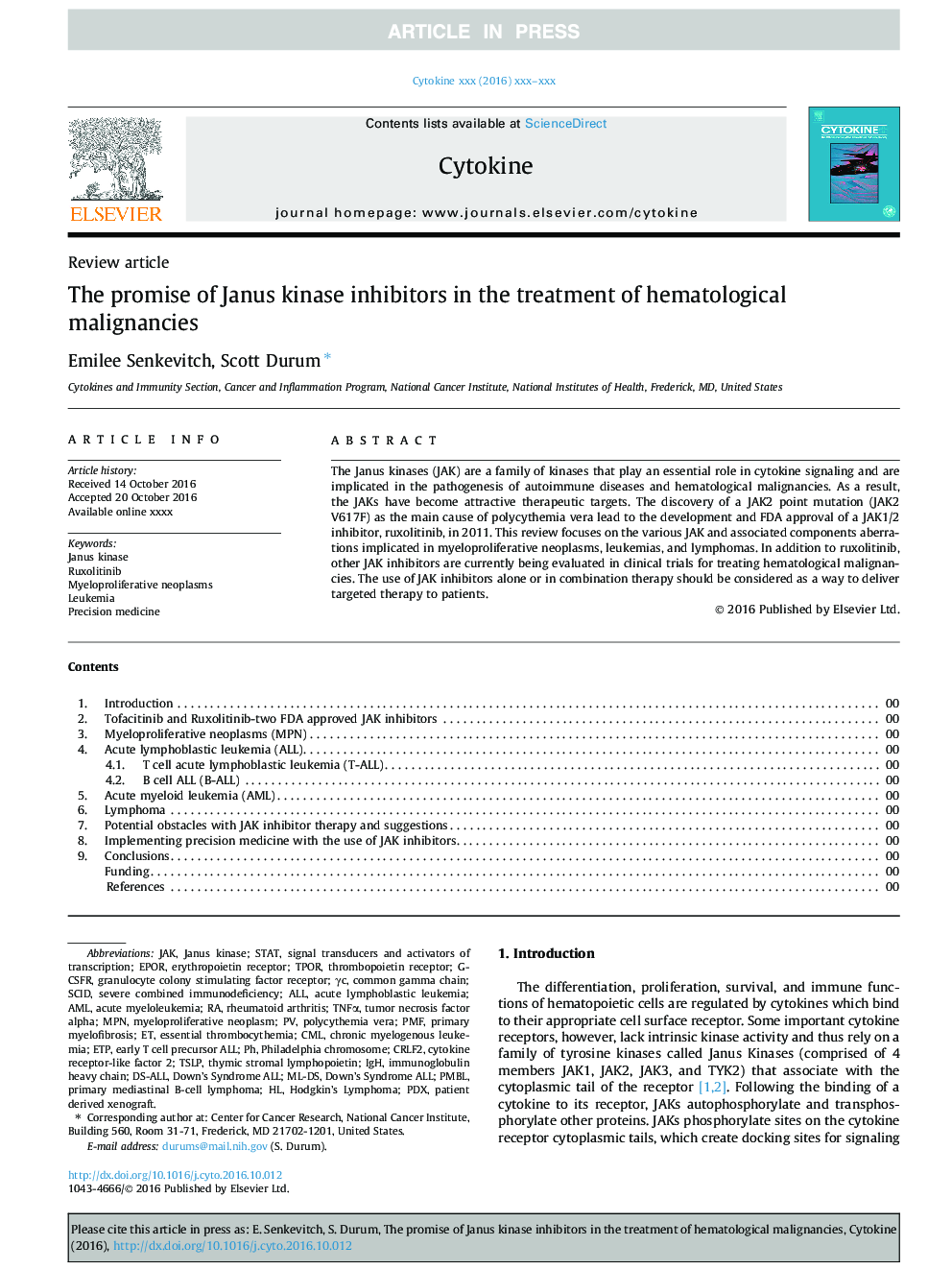| Article ID | Journal | Published Year | Pages | File Type |
|---|---|---|---|---|
| 5586911 | Cytokine | 2017 | 9 Pages |
Abstract
The Janus kinases (JAK) are a family of kinases that play an essential role in cytokine signaling and are implicated in the pathogenesis of autoimmune diseases and hematological malignancies. As a result, the JAKs have become attractive therapeutic targets. The discovery of a JAK2 point mutation (JAK2 V617F) as the main cause of polycythemia vera lead to the development and FDA approval of a JAK1/2 inhibitor, ruxolitinib, in 2011. This review focuses on the various JAK and associated components aberrations implicated in myeloproliferative neoplasms, leukemias, and lymphomas. In addition to ruxolitinib, other JAK inhibitors are currently being evaluated in clinical trials for treating hematological malignancies. The use of JAK inhibitors alone or in combination therapy should be considered as a way to deliver targeted therapy to patients.
Keywords
PMBLγcEpoRTSLPIgHPrimary mediastinal B-cell lymphomaTpoRSCIDPolycythemia veraG-CSFRETPCMLPMFMPNPDXCRLF2TNFαAMLJanus kinaseRuxolitinibRheumatoid arthritisSTATPatient derived xenograftEssential thrombocythemiatumor necrosis factor alphaImmunoglobulin heavy chainCommon gamma chainHodgkin’s lymphomaThymic stromal lymphopoietinleukemiaAcute lymphoblastic leukemiachronic myelogenous leukemiasignal transducers and activators of transcriptionprimary myelofibrosisMyeloproliferative neoplasmMyeloproliferative neoplasmsSCID, Severe combined immunodeficiencyALLPrecision medicineJAKPhiladelphia chromosomeErythropoietin Receptorthrombopoietin receptor
Related Topics
Life Sciences
Biochemistry, Genetics and Molecular Biology
Endocrinology
Authors
Emilee Senkevitch, Scott Durum,
